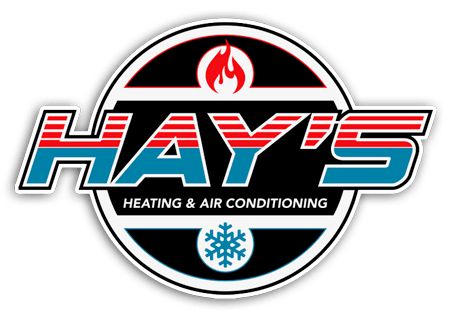In the ever-evolving landscape of modern living, the role of Heating, Ventilation, and Air Conditioning (HVAC) systems has become fundamental in defining the comfort and livability of our indoor spaces. From sweltering summers to freezing winters, HVAC systems provide a sanctuary of temperate bliss. This comprehensive guide delves into the intricacies of HVAC systems, unraveling their components, workings, and the types available to cater to diverse needs. Whether you are a homeowner, a business proprietor, or simply an inquisitive learner, understanding the nuances of HVAC systems is key to making informed decisions for your living or working environment. Join us on this enlightening journey to uncover the secrets of HVAC systems and their pivotal role in our daily lives.
What is HVAC? And what does HVAC stand for?
HVAC, an acronym for Heating, Ventilation, and Air Conditioning, represents a comprehensive system designed for maintaining environmental comfort and air quality in indoor spaces. At its core, an these systems serve multiple critical functions. It heats spaces during cold weather through heaters or furnaces, and cools them in hot weather via air conditioning units. Ventilation, a vital component of HVAC, replaces or exchanges air within a space to provide high indoor air quality. This process removes moisture, smoke, odors, heat, dust, airborne bacteria, carbon dioxide, and other gases, and replenishes oxygen. The system’s filtration aspect also plays a key role in cleaning and purifying the air. Overall, HVAC systems are integral in residential, commercial, and industrial settings, ensuring comfort, health, and safety by regulating the indoor climate and maintaining clean, breathable air. This guide will explore the various facets of HVAC systems, offering insights into their operation, types, and importance in modern infrastructure.
What Does an HVAC System Do?
An HVAC system is a multifaceted solution to indoor environmental comfort. Its primary functions include:
Temperature Regulation
It heats or cools the indoor air to maintain a comfortable and consistent temperature, adapting to the external climate and user preferences.
Air Quality Improvement
By filtering and circulating air, HVAC systems remove pollutants, allergens, and excess moisture, significantly improving indoor air quality.
Humidity Control
It manages indoor humidity levels, preventing issues like mold growth and ensuring a comfortable environment.
Overall, an HVAC system creates and maintains a healthy, comfortable, and safe living or working space by balancing temperature, air quality, and humidity.
How Does HVAC Work?
The functionality of HVAC systems is a marvel of engineering, designed to maintain comfortable indoor environments through heating, cooling, and air quality management. At its core, these systems operate on the principles of thermodynamics, fluid mechanics, and heat transfer.
Heating
In colder months, HVAC systems generate heat using furnaces or heat pumps. Furnaces burn fuel to produce heat, whereas heat pumps transfer heat from outside to inside.
Cooling
During warmer periods, the system works in reverse. Air conditioners and heat pumps extract heat from indoor air, expelling it outside. This process involves a refrigeration cycle, where a refrigerant absorbs and releases heat, cooling the air.
Ventilation
This involves the exchange of indoor and outdoor air, crucial for removing airborne contaminants and regulating humidity. These systems achieve this through a series of ducts and vents, ensuring consistent air movement.
Air Quality Control
HVAC systems are equipped with filters and purifiers that trap dust, pollen, and other pollutants, ensuring the circulated air is clean and healthy.
Each component of an HVAC system works together seamlessly, regulated by a central thermostat that allows users to set their desired temperature and comfort levels. The sophistication of modern heating and cooling systems lies in their ability to adapt to different environmental conditions, ensuring efficient energy use while maintaining optimal indoor climates.
HVAC System Basics: Components Explained
An HVAC system comprises several key components that work together to ensure efficient heating, cooling, and air quality management:
Heating Unit
Typically a furnace or boiler, it generates heat distributed throughout the space.
Cooling Unit
Usually an air conditioner or heat pump, it removes heat from indoor air to cool the environment.
Ventilation
A network of ducts and vents circulates air within the building, ensuring a continuous supply of fresh air and removal of stale air.
Air Filters
These trap dust, pollen, and other pollutants, ensuring the circulated air is clean.
Thermostat
This control unit regulates the overall operation of the HVAC system, maintaining desired temperature settings.
Each of these components is integral to the HVAC system’s overall performance, contributing to creating and maintaining a comfortable indoor environment.
Types of HVAC Systems
HVAC systems come in various types, each designed to meet specific needs and building requirements:
Central Air Conditioners and Heat Pumps
Used in larger homes and commercial buildings, these systems use ducts to distribute cooled or heated air.
Ductless Mini-Split Systems
Ideal for heating and cooling individual rooms, they offer flexibility for buildings without ductwork.
Window Air Conditioners
Designed for cooling single rooms, these are an economical option for smaller spaces.
Portable Air Conditioners
Similar to window units but portable, suitable for temporary space cooling.
Furnaces
Utilize a blower to circulate heated air through a network of ducts, commonly using natural gas, oil, or electricity as fuel.
Boilers
These heat water to provide steam or hot water for heating through radiators or under-floor systems.
Hybrid Systems
Combine a gas furnace with an electric air-source heat pump, offering energy efficiency and cost-effectiveness.
Geothermal Heat Pumps
Utilize underground temperatures to provide heating and cooling, known for their high efficiency and environmental friendliness
Packaged Heating and Air Conditioning Systems
All components are contained in a single outdoor unit, ideal for limited indoor space scenarios.
Variable Refrigerant Flow (VRF) Systems
Used in commercial buildings for their efficiency and ability to control the temperature in individual rooms.
Each system type has its advantages and considerations, such as efficiency, cost, installation complexity, and suitability for specific climates or building designs. The choice of system depends on various factors including building size, climate, and personal preferences.
What HVAC System is Right for Me?
Choosing the right HVAC system depends on several factors: the size and layout of your space, local climate, energy efficiency goals, and budget. For smaller homes or rooms, a window air conditioner or ductless mini-split might be sufficient. Larger homes or commercial spaces often require central air conditioning systems or heat pumps for efficient heating and cooling. For those prioritizing eco-friendliness, geothermal heat pumps could be the ideal choice.
However, the best way to determine the most suitable system for your needs is to consult with an HVAC professional. They can assess your specific situation, recommend the most efficient and cost-effective options, and ensure proper installation and maintenance.
For residents in Durham, NC, Hay’s has garnered a reputation among locals searching for Durham HVAC services. We’re a family owned and factory certified HVAC company that can provide tailored advice and solutions for your needs.








